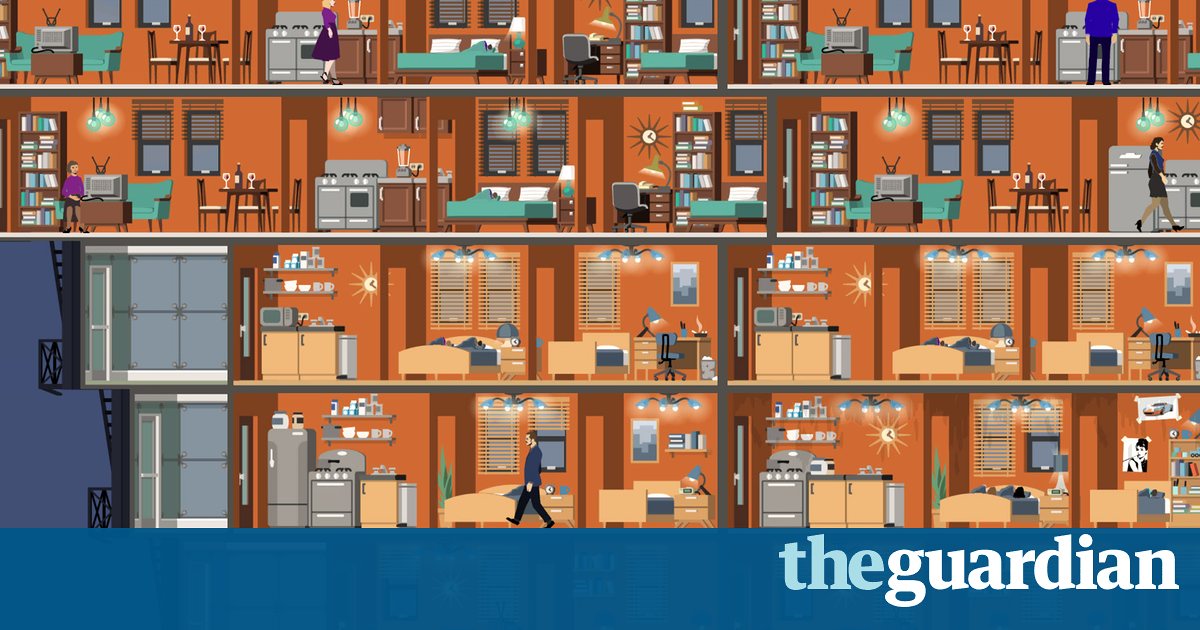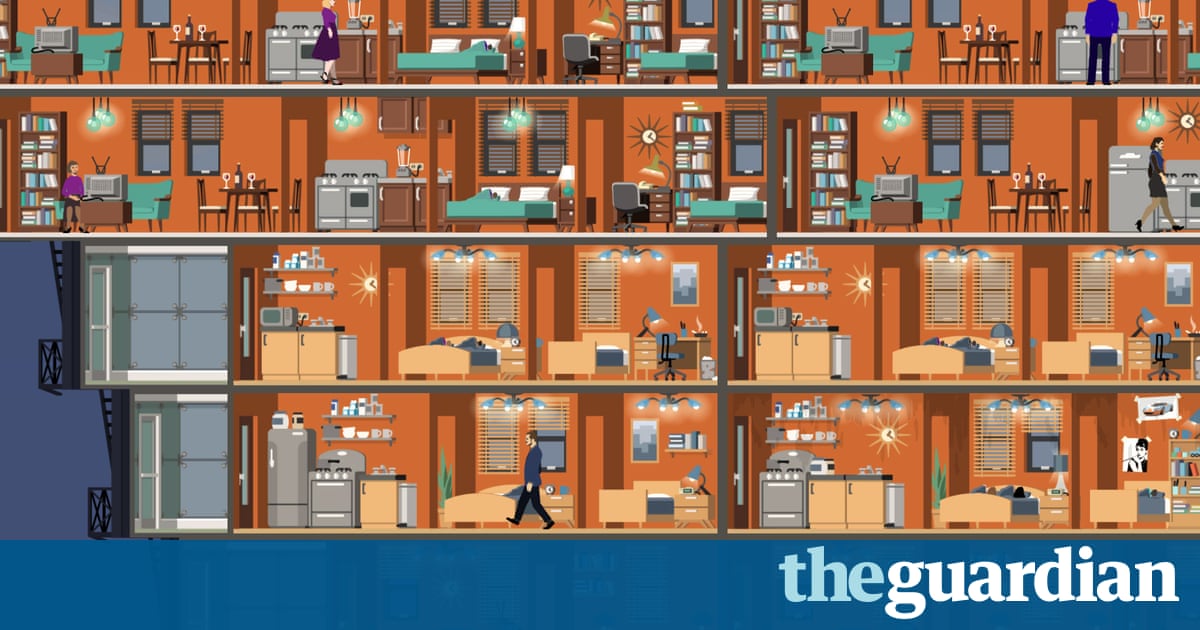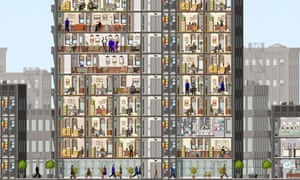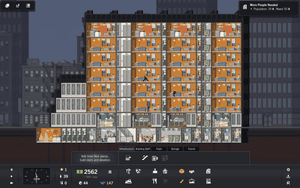Virtual realty: can a computer game turn you into an evil property developer?

Delaying repairs to save money and dehumanising your tenants … Adam Forrest becomes a virtual landlord and learns some interesting and depressing lessons

Building my first high-rise tower wasnt too difficult. I threw up some studio apartments, hooked them up with power and phone lines, arranged for a rubbish collection, and welcomed my first tenants. I packed the people in, stacked the units, and the profits soon began to pile up nicely.
Its fun being a virtual landlord. Ive been playing Project Highrise, a PC and Mac real estate management simulation, since the games release in September. It gives cash-strapped renters like me a chance to indulge the wild fantasy of owning property. It also offers members of Generation Rent some insight into how real-world landlords and larger developers actually do business.
Despite its cutesy appearance, the game is surprisingly detailed and utterly unsentimental. You begin the game by managing the costs of building infrastructure, and trying to avoid taking on too much bank debt before your tenants can provide a steady revenue stream. Before too long, youre hiring consultants to lobby city hall for a metro station and wondering whether prestige artwork in the hallway might attract higher-paying residents.
In becoming a digital Donald Trump, I learned some interesting, if slightly depressing lessons. For one thing, its costly to lose tenants. You dont want a day to go by without any rent; and you dont want to have to reach into your pocket to refurbish an empty flat to make it rentable again. So its best to keep all current tenants happy, if you can. But fixing up occupied flats that have turned grimy is also expensive, so its worth trying to hold out as long as possible without doing repairs.

I also learned how easy it is to dehumanise your tenants. At first, each new tower resident was an intriguing little person I cared about. I customised their names so I could remember their characteristics. Phyllis, who didnt seem to go out much, became Phyllis the Quiet One. Mildred, who always complained about the smell of the rubbish bins on her floor, became Smell-sensitive Mildred. Dave was simply Tank Top Dave.
But before too long, after filling six or seven floors, I forgot about them as individuals. They were simply rent payers; inhabitants of my units. And if they werent happy about something, they became a profit-draining pain.
We did a lot of research about how real-world things function, says Matthew Viglione, designer of Project Highrise, which is made by Chicago-based SomaSim. We talked to building developers and owners in Chicago about how much they plan for, how much they react, how needy certain tenants are, and how much you want residential [tenants] versus commercial [tenants]. We did walking tours of various skyscrapers, and said, Yes, we want that element in the game.
Project Highrise runs a series of urban development challenges in which the player is put in charge of buildings in crisis, based loosely on repurposed and rejuvenated downtown Chicago skyscrapers like the Marquette Building.
I tried one challenge called neighbourhood revitalisation, which tests your ability to revive a particularly run-down building and restore it to profit-making glory. Shamefully, I found it cost effective to evict low paying cafes and cheap liquor stores and bring in some higher paying creatives graphic design studios, architectural practices and talent agencies. Perhaps I was only following the gentrification model Ive absorbed from real-life London.

Project Highrises programmer, Robert Zubek, says the game was not based on any one model of change and it is possible to adopt a number of different strategies to find reliable, long-term profit.
If you imagine a game where your tower is grimy and run down, you dont actually have to fix it, Zubek explains. You can just lower the rent just enough for people to be less unhappy, so that they dont move out. So you can play this slumlord kind of game. It is still dehumanising, because ultimately youre having to treat your tenants as financial resources.
In this respect, the game reflects life all too well. If continually watching the bottom line seems a little grim, there is at least the consolation of playing with the form of your fantasy tower. Would-be architects can tinker with the shape of construction, although SomaSims designers admit to being strongly influenced by the simple, clean modernism of Chicagos Mies van der Rohe for the games basic structural elements.
Its a style that travels well, explains Viglione. And the interior design, the colour palette and furniture were borrowed from the 1960s. Theres something very simple, international and appealing about it. I think the optimism of that era was fantastic.
Intriguingly, some of SomaSims early ideas were too awkward to incorporate into the finished game. One concept the team considered, before it was finally deemed too complex, was offering virtual tenants the chance to sign up to long-term tenancy contracts.
We did consider introducing leases where residents could agree to be locked into long-term leases, says Zubek. But we had a hard time making that easy for the player to understand it just made it harder to enjoy the game. You want to give the player a lot of power so they have the agency to do things.
After six weeks of playing Project Highrise, squeezing tiny tenants living in my laptop tower, I found myself envisioning a different kind of video game: a fantasy world which flipped everything on its head, and put the tenant in control.
In this alternative game (Project Housing Crisis?) wealthy property magnates would be able to vicariously experience the life of an impoverished renter, attempting to dodge rent hikes and the threat of eviction while saving up for a deposit. You never know, it might even make our cities kinder, more human places.
Follow Guardian Cities on Twitter and Facebook and join the discussion
Read more: https://www.theguardian.com/cities/2016/nov/09/virtual-realty-computer-game-evil-property-developer